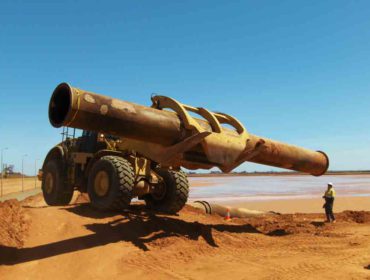More frequent pumping to preserve coral reefs
Tighter environmental requirements are leading to more regular work for the Van Heck fleet of pumps. In large dredging operations such as the one in Port Hedland on the northwestern coast of Australia, every effort must be made to protect vulnerable marine life during industrial operations.
The port has one of the world’s biggest iron storage depots. Because the small particles of sediment that are released could damage protected marine ecology, the dredging waste first must settle in a large basin. The operation leaves the water much clearer and Van Heck then pumps it back into the sea. These extra precautionary measures particularly benefit the sea turtles, who lay their eggs on the beach during the breeding season. Van Heck has also used heavy pumps from its HK series to apply secondary treatment to dredging water off the coast of Thailand and the Bahamas. In the Bahamas, these measures are intended to preserve the coral reefs off the archipelago. The fear was that tourists, who come to this unusual area to scuba-drive and snorkel, might stay away if the water was too cloudy. Van Heck is working closely with dredging firm Jan de Nul in Australia, with Van Oord in Thailand and with Boskalis in the Bahamas. Only the assignment in Thailand has so far been completed; the others are still ongoing.
Strictest environmental requirements
Van Heck’s pump installations also meet the strictest environmental requirements (the latest pump fleet already meets the emission standard for 2014). The environment is a growing market which the designers and technicians at Van Heck are cleverly using their equipment to exploit. For an innovative company like Van Heck, finding answers to new questions is the best possible challenge.

